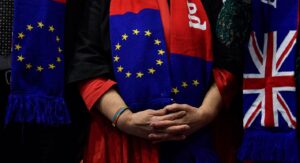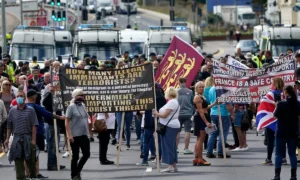Ireland’s political landscape, much like that of many countries, has been marred by numerous scandals that have left indelible marks on its history. These scandals often reveal the darker side of politics, exposing corruption, greed, and the abuse of power. In this article, we delve into some of the most notorious political scandals in Ireland, examining their causes, the fallout, and the broader implications for Irish society.
The Arms Crisis of 1970: A Government in Turmoil
The Arms Crisis of 1970 stands as one of the most dramatic and controversial episodes in modern Irish history. This scandal erupted when it was discovered that government ministers were involved in a covert operation to import arms for the IRA, ostensibly to defend nationalist communities in Northern Ireland. The crisis reached its zenith when two senior ministers, Charles Haughey and Neil Blaney, were dismissed from their positions, and the government faced a political firestorm.
The revelations had profound implications. The trial that followed saw Haughey and Blaney acquitted, but the political damage was irrevocable. Trust in the government plummeted, and the scandal sowed seeds of division within the ruling Fianna Fáil party. The crisis highlighted the complex and often dangerous intersections of politics and paramilitary activities during the Troubles, significantly altering the political landscape of Ireland for years to come.
The Moriarty Tribunal: Unveiling Corruption
In the late 1990s, the Moriarty Tribunal was established to investigate allegations of financial impropriety involving senior political figures. The tribunal’s findings, published in the early 2000s, painted a grim picture of corruption at the highest levels of government. The most high-profile figure implicated was former Taoiseach Charles Haughey, who was found to have accepted substantial sums of money from businessmen in exchange for political favors.
The tribunal’s revelations sent shockwaves through the Irish political establishment. It exposed a culture of graft and patronage that undermined public trust in elected officials. The scandal not only tarnished the reputation of those directly involved, but also prompted widespread calls for political reform. As a result, Ireland introduced stricter regulations on political donations and transparency measures to restore public confidence in its political system.

The Banking Crisis and Political Fallout
The global financial crisis of 2008 had devastating effects worldwide, but in Ireland, it was compounded by a series of political scandals involving the country’s banking sector. The reckless lending practices of Irish banks, combined with regulatory failures and political cronyism, led to the near-collapse of the economy. The government’s decision to guarantee the banks’ liabilities without fully understanding the extent of the debts was a key moment of controversy.
The aftermath of the banking crisis saw severe austerity measures imposed on the Irish populace, leading to widespread public outrage and protest. Political leaders were accused of being too closely tied to the banking elite, and the scandal eroded trust in the government. This period of economic hardship and political disillusionment spurred a wave of new political movements and a significant shift in voter behavior, dramatically altering the Irish political landscape.
Conclusion
Political scandals have a unique power to shape the course of history, often acting as catalysts for change and reform. In Ireland, scandals such as the Arms Crisis of 1970, the revelations of the Moriarty Tribunal, and the fallout from the banking crisis have left deep scars but also spurred significant political and societal changes. These high-profile cases serve as stark reminders of the importance of accountability, transparency, and integrity in public life. As Ireland continues to evolve, the lessons learned from these scandals remain crucial in guiding the nation’s future political conduct.



